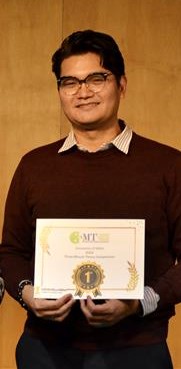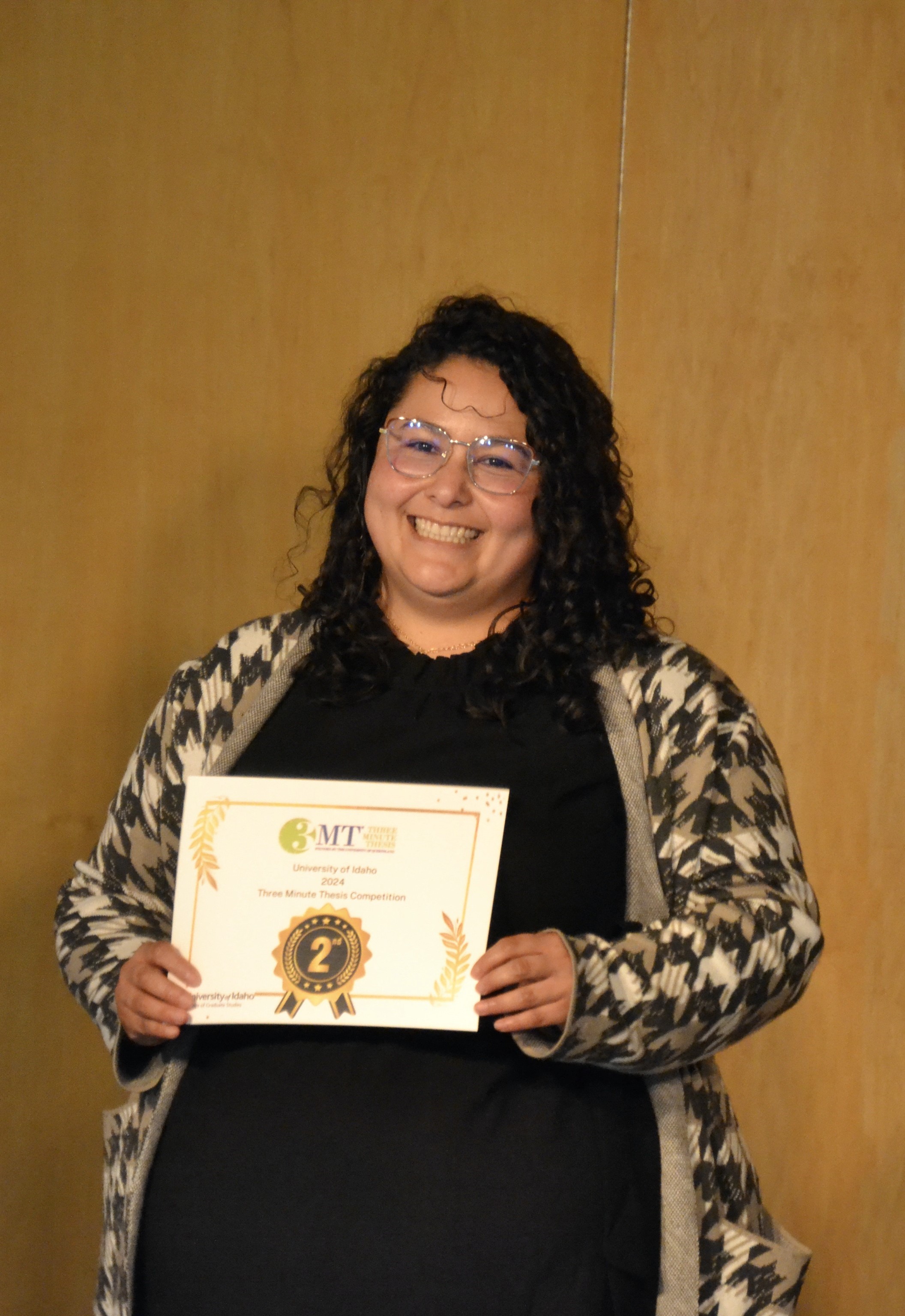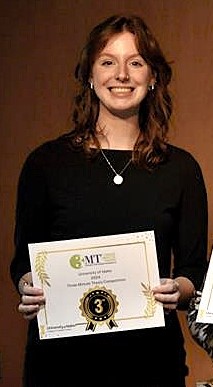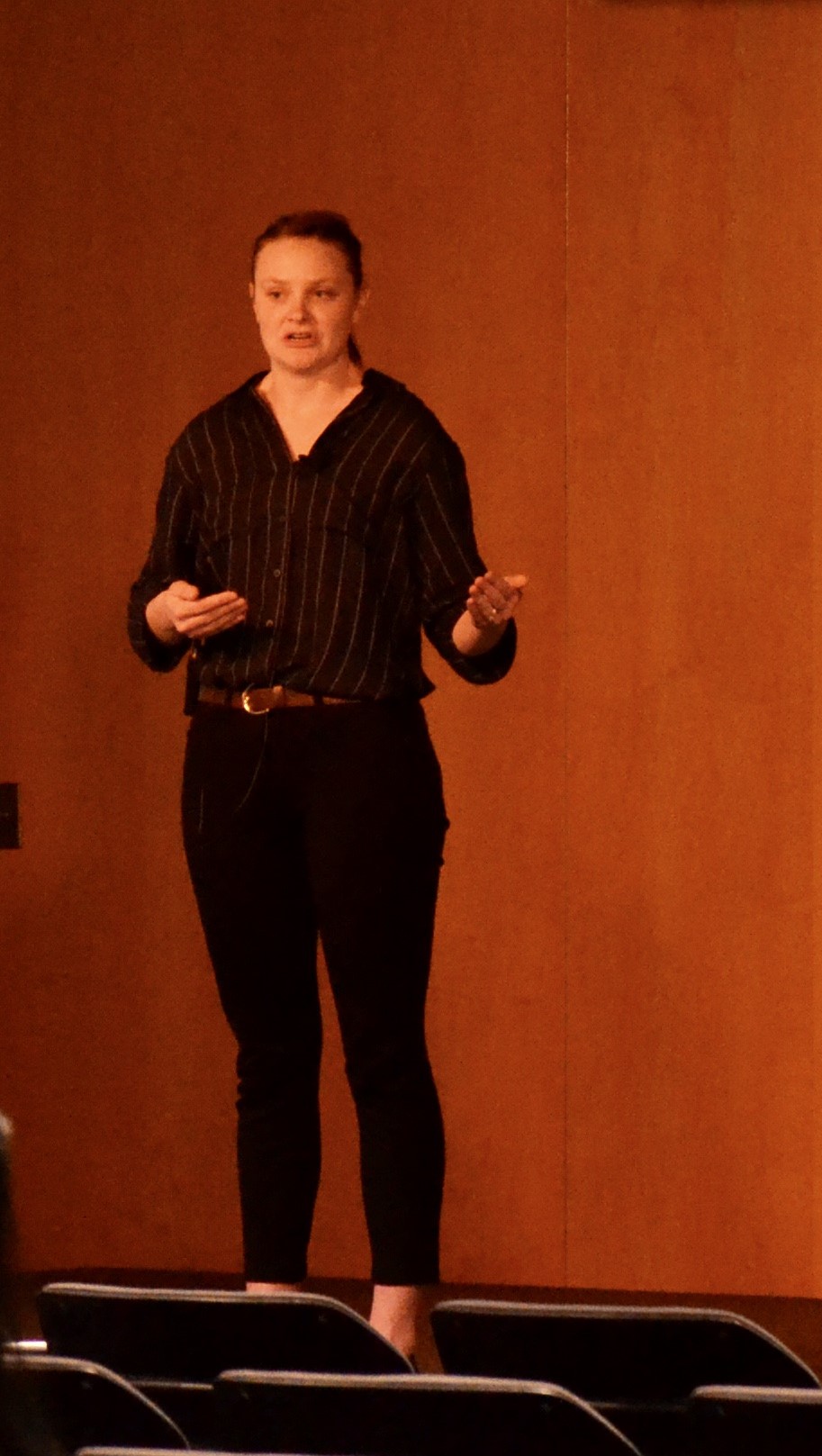2024 Winners
1st Place
Brian Tibayan
“Improv-ing Science: Bridging the Communication Gap”
ABSTRACT:
Effective science communication is essential for addressing global issues such as climate change and public health crises. This case study investigates the impact of empathy-based applied theatrical improvisation as a pedagogical tool to enhance the communication abilities of STEM graduate students. I designed a science communication curriculum and conducted an eight-week workshop where participants learned to articulate their research by adopting audience perspectives, fostering empathy, and using storytelling techniques. Using qualitative measures, I collected data from surveys, reflections, and interviews, which revealed that participants enhanced their ability to engage diverse audiences and simplified intricate concepts. This interdisciplinary approach not only cultivates a more relatable form of scientific discourse but also equips emerging scientists with essential skills for public engagement. The findings stress the necessity of integrating science communication training into STEM education to ensure that scientific advancements are comprehensible and appreciated by broader audiences.
Brian is a PhD student in Education studying under Dr. Brant Miller.

2nd Place and People's Choice
Rita Franco
“Improving Child Nutrition Through Household Poultry Projects in Guatemala”
ABSTRACT:
The University of Idaho is conducting research in a Mayan community in Guatemala, where 6 out of 10 children under five are stunted, and 3 out of 4 families are food insecure. Stunting is when a child is too short for their age. Stunting has irreversible consequences, affecting learning capacity and job opportunities and increasing the risk of infections and chronic diseases. The lack of affordable protein in children's meals is a contributing factor. The research has shown that children who eat one egg daily are more likely to have an appropriate height for their age, suggesting that egg consumption can prevent stunting. Providing children with eggs daily could help prevent stunting and improve their future.
Rita is a PhD student in Family and Consumer Sciences under Dr. Ginny Lane.

3rd Place
Anna Medlin
“Telling a Park’s Story: Identifying and Evaluating Interpretive Themes”
ABSTRACT:
Over the past five years, Idaho State Parks has seen a 27% increase in visitation, with 7.4 million annual visitors between 2020 and 2022. This surge necessitates educating visitors to foster lasting connections with the parks, promoting environmental stewardship and advocacy. Interpretation, defined by Tilden as revealing meaning through firsthand experiences rather than just facts, is crucial for this engagement. Interpretive programs enhance visitors' understanding of parks' cultural and natural resources, leading to better conservation behaviors. This study will use the Delphi method to identify key interpretive themes for nine Idaho State Parks, involving expert questionnaires and focus groups, followed by a gap analysis of existing interpretive media. Results will provide park management with summaries of key themes to enhance programming and visitor services and offer a model for other agencies to systematically identify and inventory interpretive themes, guided by agenda-setting and framing theories.
Anna is a M.S student in Natural Resources under the guidance of Dr. Chris Zajchowski.

4th Qualifier
Amy Hilger
“The nutritional trade-offs that white-tailed deer make in response to human disturbance”
ABSTRACT:
Northern Idaho offers diverse outdoor recreation activities such as hiking, hunting, mountain biking, and ATV use. While these activities allow people to explore the state’s natural beauty, they can be disruptive to local wildlife populations. White-tailed deer, in particular, play an important ecological, cultural, and socioeconomic role in Northern Idaho. They contribute to a multi-billion-dollar hunting and wildlife viewing industry and serve as an essential food source for many carnivore species. Nutrition has been shown to be a key factor in increasing white-tailed deer survival and growth, with access to highly nutritious plants being especially important during different reproductive stages. However, access to nutritious plants is not uniform across the landscape, and external factors, such as the fear of humans, can influence where deer choose to forage. My research aims to evaluate the nutritional trade-offs that white-tailed deer make in response to human activity.
Amy is an MS in Fish and Wildlife Studies with Dr. Eva Strand.











